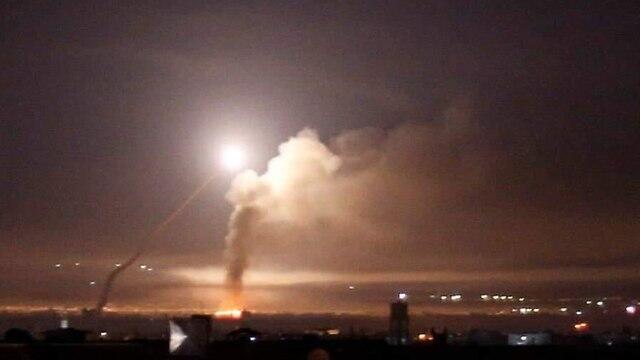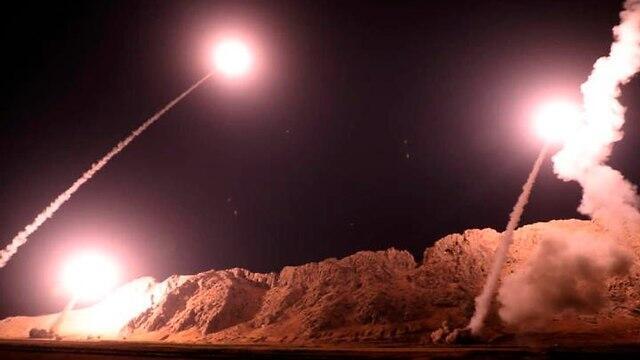Getting your Trinity Audio player ready...
Syria's missile defense systems had intercepted "more than a third" of the missiles fired by the Israeli Air Force during an attack in Latakia last month, Syrian Foreign Minister Walid Muallem told Lebanon's Al-Mayadeen on Tuesday.
and Twitter
On September 17, Israel mounted an attack on several targets in the Syrian coastal town, including a military rocket factory and an ammunition depot.
According to a statement issued by the IDF after the attack, IAF aircraft "attacked a facility from which the Syrian army intended to transfer systems for manufacturing high precision-guided weapons for Iran and Hezbollah. The weapons are meant to attack Israel and constitute an intolerable threat to it."
During the attack, Syrian forces accidentally shot down a Russian Ilyushin IL-20 plane used for reconnaissance, killing all 15 crew members on board.
Moscow blamed Israel ,saying the IAF misled the Russians by presenting false information regarding the targets of the strike, preventing the Russian plane from leaving the danger zone.
Russia also accused the IAF planes of using the Ilyushin IL-20 as a shield against Syria's anti-aircraft missiles.
In response to the incident, Moscow announced it will provide Syria with the advanced S-300 missile defense system.
Russian Foreign Minister Sergey Lavrov said over the weekend that the transfer of the S-300 system to Syria has already begun.
'Syria, Iran cooperated in attack on ISIS'
During a wide-ranging interview with the Beirut-based Al-Mayadeen TV, set to air later Tuesday, Muallem also said the Iranian ballistic missiles attack on militants in eastern Syria the previous day was part of "legitimate" cooperation between the two countries to combat terrorism.
Iran's Revolutionary Guard launched six ballistic missiles as well as drone bombers into eastern Syria's Deir el-Zour province on Monday, targeting Islamic State militants it blamed for an attack on a military parade in Iran last month.
The strikes were the second time Iran had used cross-border missiles inside Syria. Last year, Iran also struck in militant positions in Deir el-Zour's town of Mayadeen and following another attack, in Tehran, that was blamed on ISIS.
But Monday's strikes come after Syrian government forces and allied Iranian-backed militias gained control of the strategic border town of Boukamal late last year, likely improving Iran's intelligence and capabilities in the area.
The strikes were also seen as threat to Iran's regional adversaries at a time when Tehran's nuclear deal with world powers unravels.
"The Iranian missiles are in the framework of combatting terrorism," said Muallem.
The Syrian government and its allies, as well as the US-led coalition, are separately battling ISIS, which still controls a sliver of land along Syria's border with Iraq.
The Britain-based Syrian Observatory for Human Rights, which monitors the war in Syria, said the strikes killed eight people in Hajin, a town still controlled by ISIS. It was not clear if all the killed were militants, the Observatory said, adding that one of the missiles hit a house that had been seized by ISIS.
The US military's Central Command acknowledged that Iranian forces conducted "no-notice strikes" in the area Monday and said it was assessing the damage. The coalition said no coalition forces were in danger.



